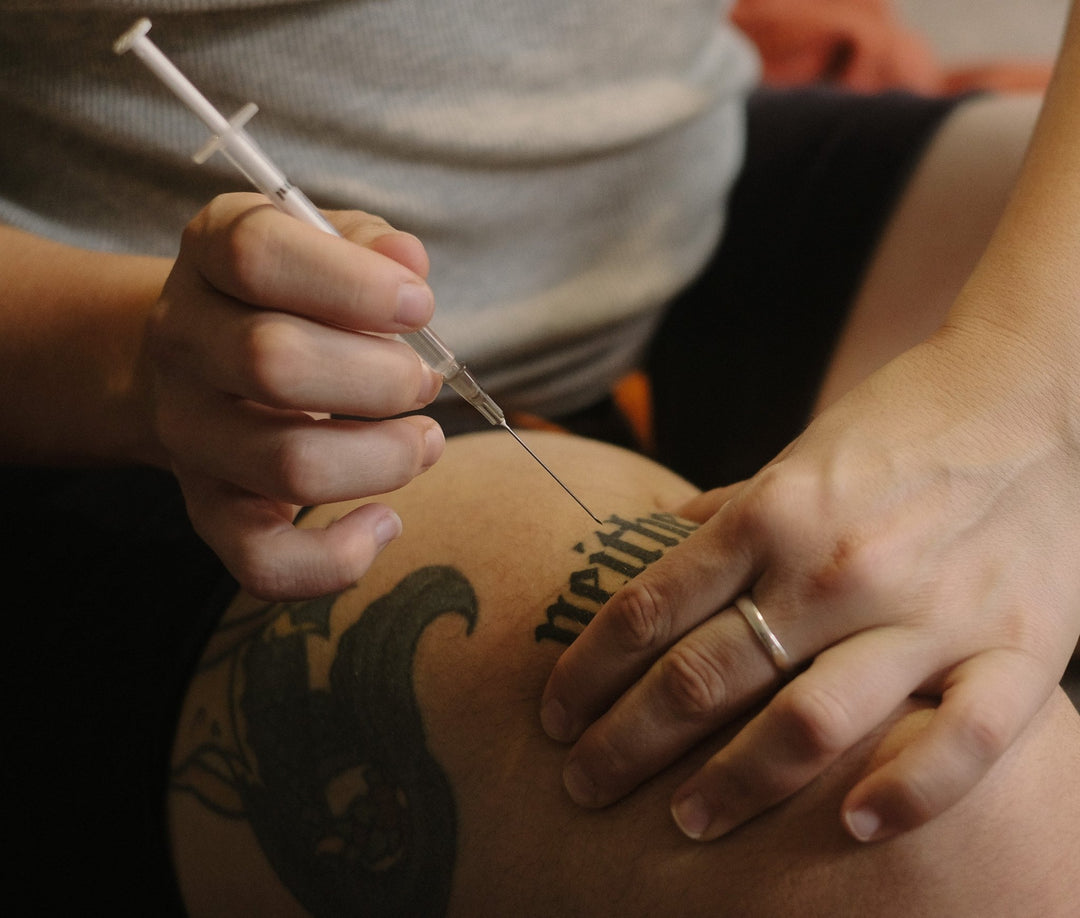Queer Patients in the Hospital
Going to the hospital, be it for a regular check-up or a very specific appointment or counseling, should be a no-brainer. And for many people, this might be the case. However, many queer people find a doctor’s visit often to be dreadful and dysphoria-inducing. While medical caretakers ought to be objective and judgemental-free regarding their patients, this is sadly not always the case. Our society is influenced by misogyny, queerphobia, transphobia, fatphobia, etc. These factors and the intersectional identities of both patients and medical professionals should be taken into account when discussing the way queer patients are (mis)treated by the medical system. Today we briefly look into a few instances where healthcare fails queer people.
Trans Healthcare

It’s no secret that in most countries gender-affirming healthcare for trans and non-binary people is non-existent or severely limited. Even in places where there is a significant gender team available, they are often outsourced and cannot accommodate the number of patients seeking their needs. This leads to waiting lists ranging from 1 to even 3 years or more. Once a client has their first intake consultation, this does not result in an immediate start of hormone treatment and/or surgeries. Usually, if a patient wants to take hormones, they need more consultations with their gender specialist. Still, the input of their personal GP and a certified psychiatrist is often also needed to start hormones. This can add one or more years before a trans or non-binary person is deemed valid enough for HRT (hormone replacement treatment).
The pathologization, medicalization, and the “hoops” transgender and non-binary people have to jump through in order to be believed and get the help they need is a mentally draining and dehumanizing process. Many patients get misgendered as well, even by professionals who ought to know better. Therefore, medical health professionals and caregivers need to be sensitive to their patients. This can be as simple as using the new name and pronouns, even if this patient has not yet legally changed their name or gender marker. Be thoughtful, offer a listening ear, and believe the patient is essential. This will make a trans or non-binary patient’s journey toward their authentic selves much, much easier and pleasant.
Intersex People & intrusive surgeries
Intersex people make up about 1.7% of the population. In short, intersex people are people whose sex traits do not fully align with the norms of society regarding what the male sex and the female sex should look like. There are more than 40 different intersex variations that are not always visible in a person’s outward appearance.
As we previously covered in our blog about the Dutch documentary Hormoonrevolutie, the bodily autonomy of intersex people and children is taken away. Sometimes, as early as their birth, intersex people have surgeries thrust upon them so they may fit better into the gender binary of men and women. This leads to unnecessary and intrusive surgeries on intersex children. Many such interventions lead to a dependence on special hormone treatment because the body no longer produces the necessary hormones itself.
Intersex people and activists demand these practices to stop. It is dehumanizing and leads to complex medical health issues that could’ve been avoided, but also leaves intersex people psychologically scarred and alienated from their own bodies.
Misogyny & cissexism

Queer women and people assigned female at birth can experience extra barriers due to their perceived gender identity and/or their gender non-conformity. What’s often mentioned, is that healthcare professionals do not take their symptoms, doubts, and worries seriously. These healthcare providers will dismiss it as the patient being too emotional, being irrational, or even blaming the patient for lying for attention. This can have severe consequences for the patient’s health such as no diagnosis or a misdiagnosis leading to persistent and worsening symptoms with the extreme result being death.
At the same time, even if queer women and women in general get their issues taken seriously, there are still assumptions being made for them. An obvious example of this is the topic of breast reduction. Many women and people who opt for this surgery, will be met with prejudice and unwanted advice or commentary from not only their direct environment but also their GP and healthcare providers. On Reddit, for example, many people are sharing their experiences with reduction surgery and the way they got (mis)treated for wanting a reduction. Doctors and surgeons sometimes even assume the patient wants bigger breasts or doesn’t want as big of a reduction as they initially stated. These assumptions are rooted in the way society is misogynistic and cisheteronormative, where the opinion of cis men is treated as the default. This leads to the assumption that any woman always seeks or needs the validation of a man, or makes decisions based on what men might think of her. Everyone who wants a reduction should be treated respectfully and should not have their decision questioned or disregarded.
Misgendering & binary system
In the medical field, the gender binary is alive and well. As we covered in the previous parts, the gender binary is reinforced through intrusive surgeries on intersex children, the attitudes toward reduction surgeries, and the many hoops trans people need to jump through before they are believed and can get the necessary medical help. However, there are many other instances where the gender binary is reinforced and encouraged by the system.
Take a look at the paperwork. Most forms you have to fill in, only let you choose between man/woman, father/mother, etc. Trans men who have changed their gender marker will no longer be informed about annual cervix screenings, whether they still have their reproductive organs or not. As a transmasculine person myself, I can only assume this might be similar to trans women who haven’t undergone bottom surgery and may no longer receive invitations for screenings for testicular cancer.
In the Dutch documentary Ryan is zwanger briefly discussed in our previous blog post, non-binary parent and baba Ryan shows the viewers how difficult it is to be a non-binary parent who gives birth. People still assume only cis women become pregnant and that is reflected in the attitudes and, of course, the paperwork involving parenthood. Registering as a non-binary parent is very difficult and in many countries not even recognized. This means the pregnant person has to register themself as a mother. Outside the direct medical field, most presents for the expecting parents and the baby itself are also heavily gendered and heteronormative. Try to think of a gender-neutral card for expecting parents, or celebrating a gay or queer couple. I bet you haven’t found many examples directly in your local store.
Fatphobia
It’s no secret society hates fat people. There’s a lot of stigma and shame around fat people. They get ridiculed, humiliated, and avoided in public, and the healthcare system is sadly not much different. Going to the GP can be equally dreadful to queer, fat people. A person’s fatness is quick to be used as the sole reason for the person’s possible health issues or symptoms. Similar to women and AFAB people who aren’t taken seriously, this misdiagnosis can lead to a disastrous health decline of the fat patient.
Among fat transmasculine people, there is a common experience where if the person wants to be eligible for top surgery, they need to lose weight. A lot of medical knowledge is still based on the BMI metric system. A metric system, mind you, that was designed for European men which means the scale is biased for women, non-binary people, and non-European people.
What now?
The biases in the medical field are of course more nuanced and complex than this short article. Besides the ones briefly touched upon, there are many more issues to take in account. Think, racism, ableism, xenophobia, etc. It will take a big change in multiple systems to change the circumstances, but as individuals, we can do our own part of changing the system and improving the lives of queer patients everywhere.
Believe your patients, listen to them, be empathetic and open-minded and name and gender them as they want to be called. If possible, offer gender-neutral options on forms and while these actions might seem small to some, they can definitely make a queer person’s day. It will make them feel heard and seen.






